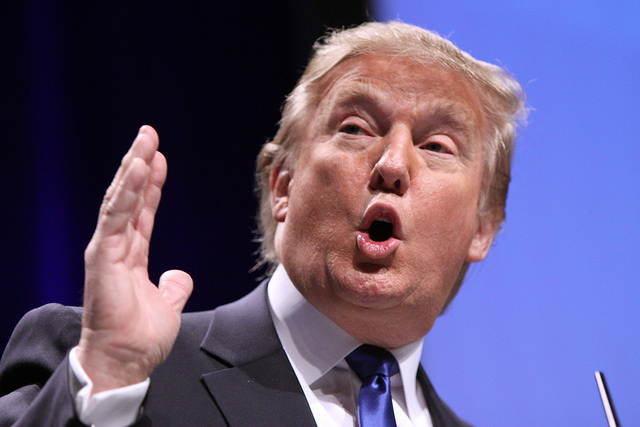One of the biggest planks in Donald Trump’s platform might be his plan to build a wall along the border with Mexico, a wall that he says he would make Mexico pay for.
But should such a wall become a reality, Mexico wouldn’t be the only one paying for it – it would cost Texas too.
That’s what Abby McCloskey, an economist who has worked on campaigns for Rick Perry and Jeb Bush, argues in a column for the Dallas Morning News. She says that Texas, which is the nation’s largest exporting state, would suffer if trade relations with Mexico became strained.
“The biggest country that Texas exports to is Mexico,” McCloskey says. “Over a third of Texas exports goes out to Mexico, and over a million jobs in Texas depend on our exports.”
Those jobs that would suffer the most are manufacturing jobs, she says. And the Americans that would feel the biggest impact are low-wage workers.
“When you look what we have to gain from Trump’s policies – especially for the low-wages workers, low-income families, people who are concerned about illegal immigration – the loss, especially for Texas, could be much more significant,” McCloskey says.
McCloskey also says that expecting Mexico to fund a wall that they don’t want isn’t realistic.
“We can solve these issues of illegal immigration – everyone wants better border security, that can be done without Mexico paying for the wall,” she says. “We are not asking Russia to pay for our cybersecurity defenses. Thats just not how these things work.”
Instead, McCloskey says, the best way to help our workers is to give them more opportunities, rather than damaging relations with one of our biggest trading partners.
“If we want to help our low-wage workers, the best thing we can do is to begin retraining and to offer wage subsidies to help this transition, as this economy moves into a different stage,” she says. “There’s really no turning back the clock on globalization. So it’s how can we make our workers even more competitive and able to make even higher wages going forward.”
Listen to the full interview in the audio player above.
Post by Alexandra Hart.


















